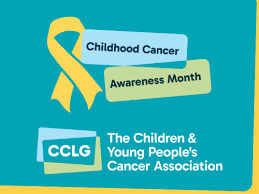
 As the globe marked Childhood Cancer Awareness Month through September, we take a moment to recognise the dedicated professionals who are not only advancing treatment and care but also providing invaluable support to children and their families during some of the most challenging times in their lives.
As the globe marked Childhood Cancer Awareness Month through September, we take a moment to recognise the dedicated professionals who are not only advancing treatment and care but also providing invaluable support to children and their families during some of the most challenging times in their lives.
Jay Halbert, our Clinical Lead for Children’s Cancer has been at the forefront of paediatric oncology at Maidstone and Tunbridge Wells NHS Trust (MTW) for five years and in our Q&A, shares his unique insights into his role, the impact of his work, and what drives him to support young cancer patients and their families through both medical and emotional challenges.
From spearheading innovative clinical trials to offering emotional guidance to patients, Jay’s approach is shaped by both his extensive experience and his deep commitment to personalised, compassionate care. Join us as we learn more about Jay’s incredible work, the people who support childhood cancer patients, and what it takes to make a meaningful difference in the fight against childhood cancer…
Can you describe your role, how long you have been with MTW and how you support children with cancer and their families?
I have been working at MTW for five years and am the Clinical Lead for Children’s Cancer. I work closely with a fantastic multi-disciplinary team — including doctors, clinical nurse specialists, pharmacists, physiotherapists, and play specialists — to provide both inpatient and outpatient care for children with cancer locally. I am also the Principal Investigator for a new multi-centre, international clinical trial for the treatment of acute lymphoblastic leukaemia in children (ALL Together). Clinical trials are vital, not only for improving outcomes, but also for reducing treatment toxicity and long-term side effects.
What do you find most rewarding about working in childhood cancer care?
Professionally, I find it incredibly stimulating to work in a field at the cutting edge of medical science, alongside a multidisciplinary team caring for very unwell children. The treatment for childhood cancer can last many months or even years, and the greatest privilege is supporting children and their families throughout this journey — celebrating milestones together and offering support during the most difficult moments.
How has your experience in this field influenced your approach to patient care?
I have been fortunate to work in paediatric oncology in both high-income settings (GOSH, UCLH, and Cambridge University Hospitals) and low-income settings (Tanzania and Myanmar). These experiences have shaped my practice, helping me to develop a personalised and compassionate approach to each child’s care, while working within evidence-based treatment protocols.
How does your team work together to support young patients and their families emotionally and medically?
Our Paediatric Oncology Shared Care Unit (POSCU) at MTW works closely with tertiary centres such as the Royal Marsden Hospital and GOSH to deliver care for children locally. This includes outpatient chemotherapy, supportive care such as managing admissions for febrile neutropenia, and symptom management. We are also fortunate to have a local paediatric psychologist who provides vital emotional support to our patients and their families.
Tell us a fun fact about you…
Outside of work, I love spending time with my twin daughters. We enjoy singing and dancing, painting, countryside walks, cooking, going to live music and theatre, and cheering on the England women’s rugby and football teams. I also value practising mindfulness, travelling, and learning through voluntary work.
